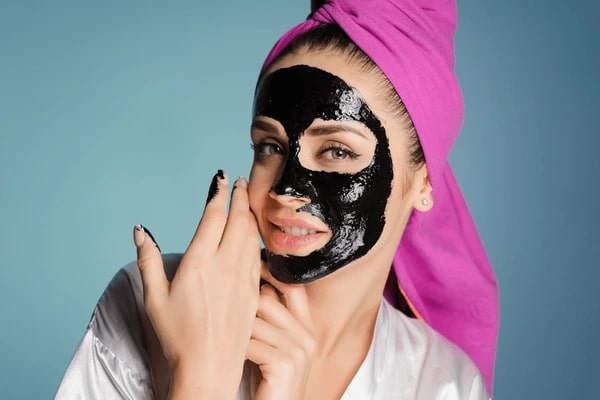Mask Acne: What is Mask Acne & How to Prevent It
As we continue to navigate through health guidelines that require mask-wearing, many of us have encountered an unexpected side effect: mask acne, often referred to as “maskne.” This term has become widely recognized due to the increase in acne breakouts related to mask usage. Addressing mask acne is crucial for maintaining both skin health and confidence.
In this blog, we’ll explore what mask acne is, its causes, and practical ways to prevent it. We’ll also highlight the expertise of Dr. Sweta Vijay Nakhwa, a renowned skin care doctor in Thane.

What is Mask Acne (Maskne)?
Mask acne, or maskne, is a specific type of acne that results from wearing a mask. Unlike other forms of acne, maskne is directly linked to the friction, pressure, and environment created by prolonged mask use.
Causes of Mask Acne
Several factors contribute to the development of mask acne:
- Friction and Pressure: The constant rubbing of the mask against the skin can cause irritation and inflammation.
- Trapped Moisture and Sweat: Masks can create a humid environment, trapping sweat and oil on the skin.
- Accumulation of Bacteria: Bacteria can build up inside the mask, leading to breakouts.
- Use of Certain Mask Materials: Synthetic fabrics can be less breathable, and more irritating compared to natural materials like cotton.
Symptoms of Mask Acne
Common symptoms of mask acne include:
- Redness and irritation in the mask-covered areas.
- Pimples and cysts around the nose, cheeks, and chin.
- Dryness and peeling skin.
- Soreness and tenderness.
How to Prevent Mask Acne?
Choosing the Right Mask
Selecting the appropriate mask can make a significant difference in preventing mask acne:
- Materials: Opt for masks made from breathable, natural fabrics like cotton rather than synthetic materials that can irritate the skin.
- Fit: Ensure the mask fits well but isn’t too tight, reducing friction and pressure points.
- Hygiene: Regularly wash reusable masks and replace single-use masks frequently to minimize bacterial buildup.
Skincare Routine Adjustments
Adapting your skincare routine is essential in managing and preventing mask acne:
- Gentle Cleansing: Cleanse your face with a mild, non-comedogenic cleanser twice daily to remove sweat, oil, and bacteria.
- Non-Comedogenic Products: Use skincare and makeup products labelled as non-comedogenic to avoid clogging pores.
- Avoid Heavy Makeup: Minimize the use of heavy makeup under the mask, which can contribute to breakouts.
Hydration and Moisturization
Keeping your skin hydrated is crucial:
- Hydration: Drink plenty of water throughout the day to keep your skin hydrated from within.
- Moisturizers: Use lightweight, non-oily moisturizers to maintain the skin’s moisture barrier without adding excess oil.
Specific Treatments for Mask Acne
For persistent mask acne, consider the following treatments:
- Over-the-Counter Treatments: Ingredients like salicylic acid and benzoyl peroxide can help manage breakouts.
- Professional Treatments: Consult with a dermatologist for options like chemical peels and light therapy, which can effectively treat more severe cases of mask acne.
- Expert Consultation: Seek advice from the best acne treatment doctors in Thane, such as Dr. Sweta Vijay Nakhwa, for personalized treatment plans.
Tips to Avoid Maskne
Daily Mask Care
Proper mask care is essential to prevent maskne:
- Washing and Sanitizing: Regularly wash reusable masks with a gentle detergent and hot water. Sanitize them to ensure they are free from bacteria.
- Disposal of Single-Use Masks: Dispose of single-use masks after each use to avoid bacterial buildup.
Skin-Friendly Habits
Adopting these habits can help maintain clear skin:
- Avoid Touching the Face: Refrain from touching your face and mask frequently to reduce the transfer of bacteria.
- Hand Hygiene: Wash your hands before applying or adjusting your mask to prevent contamination.
Lifestyle Adjustments
Maintaining a healthy lifestyle can support your skin’s health:
- Managing Stress: High stress levels can exacerbate acne. Practice stress-reducing activities like yoga, meditation, or regular exercise.
- Balanced Diet and Hydration: Eat a balanced diet rich in fruits, vegetables, and lean proteins. Stay hydrated to help your skin stay clear and healthy.
Consulting a Skin Care Doctor in Thane
When to See a doctor?
Consider seeing a dermatologist if:
- Your mask acne is persistent or severe.
- You notice signs of infection or worsening condition.
Finding the Best Acne Treatment Doctors in Thane
Professional diagnosis and personalized treatment are vital for managing mask acne effectively. Dr. Sweta Vijay Nakhwa, a leading skin care doctor in Thane, offers expert advice and tailored treatment plans to help you achieve clear, healthy skin.
Conclusion
Mask acne, or maskne, is a common issue resulting from prolonged mask use. By choosing the right mask, adjusting your skincare routine, and maintaining good hygiene practices, you can significantly reduce the risk of mask acne.
If you experience persistent or severe breakouts, consult with the best acne treatment doctors in Thane, such as Dr. Sweta Vijay Nakhwa, to receive expert care and personalized treatment.
FAQs:
Common Questions About Mask Acne
Q. Can mask acne be completely prevented?
A. While it may not be entirely preventable, following proper skincare and mask hygiene practices can significantly reduce the risk.
Q. Are there specific masks that reduce the risk of acne?
A. Masks made from breathable materials like cotton and those that fit well without being too tight can help reduce the risk.
Q. How long does it take for mask acne to clear up?
A. This varies depending on the severity and the treatment used. Mild cases may clear up in a few weeks, while more severe cases may take longer.
Q. What should I do if over-the-counter treatments don’t work?
A. If OTC treatments are ineffective, consult with a dermatologist for professional advice and treatment options.
